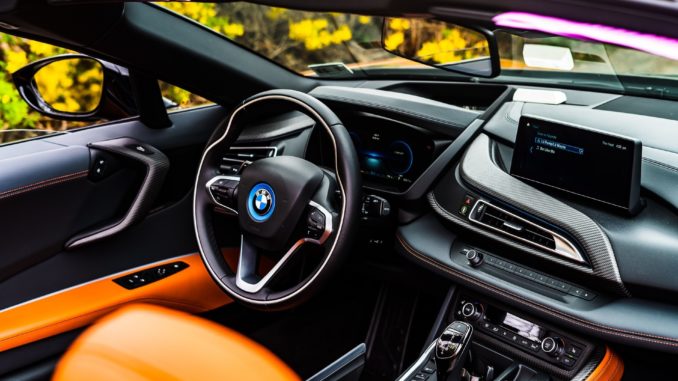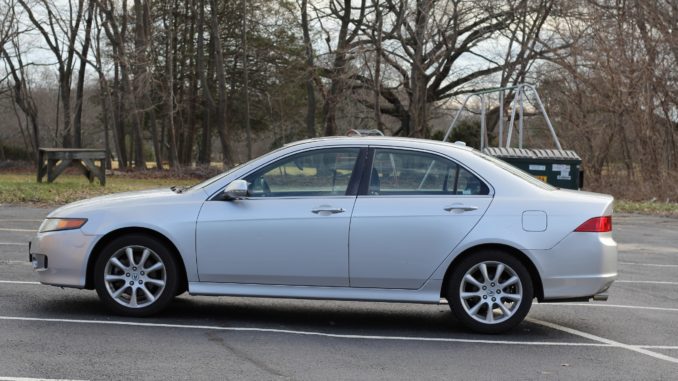
When it comes to anti-consumer practices the video game industry feels like it has been on the forefront of this sector. From draconian DRM to authentication systems that make physical copies worthless to including on-disc DLC that gamers have to pay for in order to unlock, the large players, such as Ubisoft, in the industry have been pushing it all. Now, car manufacturer BMW has taken a page out of Ubisoft’s playbook by making its consumers pay a monthly subscription just to have heated seats.
But why is the car manufacturer doing this? Is it some new technology of heated seating that BMW has developed? Like transmitting heat to a BMW owner’s seat via satellite. Perhaps a heated seat that uses proprietary fuel that only BMW manufactures? A new kind of technology that is highly efficient in power consumption? Nothing like that. The car has all the basic parts for the seats to work, but it is locked down and has to be unlocked by BMW for a monthly or annual fee.
Heated seats aren’t the only thing being locked behind the BMW paywall. Heated steering wheel, adaptive cruise control, and even the ability to hook up your iPhone via Apple’s CarPlay feature will have to be paid for. Which is insane since, if you are buying the higher-end car, you get charged at the dealership for it coming with those options. But now, you have to pay even more to access the features you already paid extra for to have installed in the car.

Gamers are all-too-familiar with this kind of experience in the video game industry. Online DRM, on-disc DLC, and features or items locked behind a paywall have rendered physical copies of games worthless. The recent outrage over Ubisoft’s removal of online support for some of its older games means that DLC, and one game, will no longer be available to download or even play, even if you purchased it before the services were shut down.
When it comes to anti-consumer practices, Ubisoft is one of the more egregious developers and publishers to push these changes, which has led to physical game copies being worthless. That consumers have no rights when it comes to the product they purchased. Now, it has started to reach the only logical conclusion where, if a developer or publisher decides to no longer support a game, they can turn off their services and the consumer will no longer have any access to a game or DLC they purchased.
All because gamers have allowed companies such as Ubisoft, Activision-Blizzard, Electronic Arts, and others to get away with these anti-consumer practices.

There used to be the argument that on-disc DLC, locked behind a paywall, was the equivalent of buying a car and having certain features locked away. The same was made for the inability to re-sell your used games. There was a lot of criticism with that argument being made. Mostly by video game news outlets not wanting to get on the bad side of developers or publishers and by gamers who were bootlickers for their favorite devs. Some gamers even convince themselves that it is their duty to continue buying these games to “rescue” or “save” the industry because those developers would go out of business and their workers would lose their jobs.
Asinine arguments to justify poor purchase decisions for instant gratification are what drives these sales as the corrupt developers used their employees as a reason for why people still needed to buy their games. The same employees that these same companies forced into crunch periods or created a hostile work environment that are still being led by the same people causing these issues.
It’s pushed the industry down a bad path where you can not resell your used video games (mostly in the PC sector though consoles have been following suit). Just amazing that car manufacturers are taking a page out of the video game industry’s book.

However, unlike the video game industry, there will be more of a backlash against BMW because this is far more expensive than a game and a mode of transportation which is an important part of life. But will it be enough to stop BMW from being stupid? We will have to wait and see.
But the fact that high-end cars are charging a subscription fee for already-installed features just boggles my mind. As we’ve seen with the video game industry, when a company starts to get away with these practices, it is only a matter of time before they start to push the envelope. Like with the gaming industry, BMW’s move will erode the rights of consumers and give more control to the manufacturer.
Miss a payment? They will be able to shut down your car. They will be able to give law enforcement access to your vehicle. Hackers will be able to gain additional access to your vehicle. Easier to shut down your vehicle in order to have it towed. And eventually, you won’t be able to resell your vehicle because it is now worthless except to the manufacturer. This is the first step in moving towards a future where you will no longer be able to resell your vehicle and the question of ownership will come into play.
If you think I am joking, you should check out an editorial I wrote over ten years ago about digital games and the issues that would be seen, that we are seeing today.

There is a bright side to all of this. The consumers who pay for heated seats in their BMWs can and should be mocked for it. Especially if they try to flex about having heated seats in their cars. As someone who drives a 2008 Acura TSX that has heated seats, I can flex on a BMW owner who brags about their heated seats. After all, I don’t have to pay a subscription for mine and they do.
Personally, if BMW owners try to brag about paying for subscription-based heated seats, I am going to assume they are retarded.
Author’s Note: Support this site by donating via Paypal or even checking out our merchandise on RedBubble where you can find designs that cater to writers and readers. Money donated and raised goes into paying for this website and equipment.



